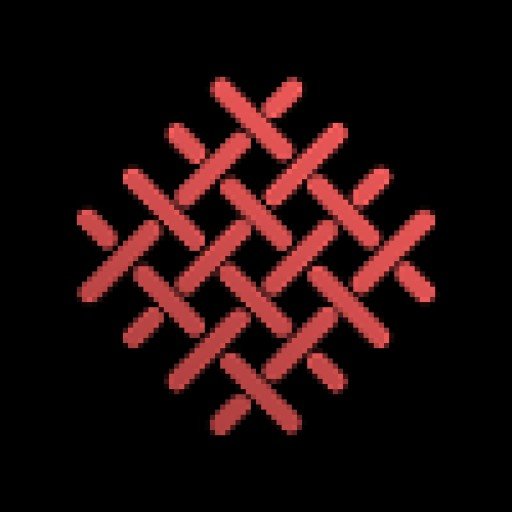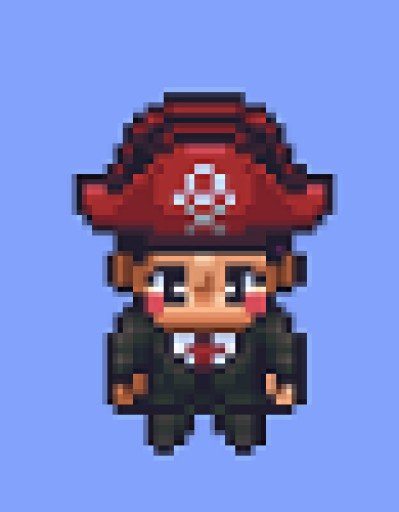[IMPACT]
<u>Background: the need for a new economy</u>
The African population will double by 2050, which increases the demand for stable jobs and economic growth. Yet, currently a large part of Africans work in informal jobs and the economic development can not nearly keep up with the growth. At the same time, Africans are more and more connected to the world and moving to cities, leading them to desire a fulfilling job, products that are made for their needs and higher living standards.
In short, African economies need to develop fast and leapfrogging industrialization is the only way to achieve stable economic growth and massive job creation.
How can we create systemic change and build scalable, yet sustainable industries fast? How can we leapfrog industrialization?
<u>Solution: The first factory of a new industrial network</u>
Waya Collective is building the operating system for a new, decentralized economy. Providing the necessary knowledge, liquidity and trust to build a collaborative and 100% locally owned economy. The “green field” provides the opportunity to leapfrog and create the most efficient, sustainable and inclusive economy in the world.
The first Waya garment factory in Uganda will set a new standard for highly efficient, sustainable and decentralized production in Africa. It will be the first factory in the Waya Collective network and therefore the first factory to use and test the Waya DApps. It will lay the foundation for Waya Collective and a new, decentralized economy in Africa and beyond.
The factory supplies products for the local demand and is part of the first Waya Collective ecosystem in Uganda. Waya ecosystems consist of three different types of Autonomous Collectives (AC):
- Creation AC: Creates Intellectual property such as new brands, products etc.
- Distribution AC: Customer facing, such as stores or last mile delivery services
- Producing AC: Manufacturing entities, such as factories
The first ecosystem in Uganda is entirely centralized and built to test the model and develop the standards to be replicated as franchises.
- The first brand (Creation AC) which sells products online is already developed and soon to be launched, the first store (Distribution AC) is currently in development, as any new ecosystem has to start demand driven.
- The first Factory (Producing AC) is therefore the last to be implemented as it is also more capital intensive. The first factory is the focus of this proposal.
<u>How does the Factory use Blockchain and Cardano?</u>
The Cardano Blockchain is the core of the Waya Collective system. It …
- governs both the collectives and the network (Autonomous Collectives Operating System (ACOS)),
- it finances the network (Liquidity Protocol (LP)),
- it organizes supply chains into a trustless system Autonomous Inventory Management (AIM),
- and it organizes and distributes intellectual property (Knowledge Sharing Protocol (KSP)).
More information in the attached White Paper.
<u>How will these systems be implemented and developed within the first factory?</u>
Wallet: In order to decentralize factories and businesses, they need to be “on-chain”, which means they can access the liquidity protocol, the knowledge sharing protocol, and share and receive data within the Inventory management protocol. The first factory will serve as a real-world testing ground for the business wallet.
Governance: Connected to the wallet, the factory will also be the first to implement the governance. It is a crucial part in order to create a thriving economy which benefits everyone, because good governance means efficient businesses and happy workers.
Identifier: To enable a truly transparent governance, we have to bring all stakeholders on-chain, meaning we can not stop at the company level, but go down to the individual level. In the first factory, we will test and implement the identifier and see how it needs to be built.
Oracles: The entire value stream of the factory should automatically be made visible in the Inventory management protocol. To make that possible the factory will be constructed with oracles to achieve that. We will use RFID Chips (can be sewed into every piece of garment) which can automatically detect every product and attached information. For that, the factory entrances will be of a specific width in order to secure the detection and will have cameras as a second source of data.
<u>What will the factory look like?</u>
The factory will have ~50 employees and will be able to produce a range of products from T-shirts to different types of pants and dresses. It will be able to work with different knitted and woven fabrics and be able to take a product from the initial parts (fabric, buttons) to a finished, packaged fashion product. A couple of tasks will be outsourced such as embroidery and printing since these take a large investment and can easily be outsourced to existing companies in Uganda at the moment. Though there will be space left to add such machines in the future.
Capacity
In a factory like this with a small degree of automation, the flexibility and possible product ranges is very high. Yet, the capacity is highly dependent on good management and training of the factory. Therefore, we put a lot of emphasis on good governance and creating working conditions that enable learning and productivity.
The factory will start with two production lines, each line having 11 workers. The following describes the number of T-Shirts one line can produce in one day with the right training:
- Day 1: 100 pcs
- After 1 month: 1000 pcs
- After 4 months: 1600 pcs
- After 1 year: 2500 pcs
A production plan for the T-Shirt for one production line and with a capacity after 1 year is attached.
This proposal is part of Waya Collective in the sense of being a building block of it and therefore developed within the Waya framework. However, it is an independent solution which will be made available to the ecosystem and benefit everyone.
Waya Collective
Waya Collective is a DAO built on Cardano with the aim to leapfrog industrialization by building the operation system for a new economy. Starting in Africa, Waya builds new industries from the ground up and utilizes Cardano to scale across the world.
Waya Collective will make Cardano for millions of people the gateway to their business, their job, and their livelihood. All members of the economy such as workers, entrepreneurs and creatives will be connected to at least one of the DApps. It will be how they will get paid, receive instructions, buy and sell goods and receive the necessary capital for any operation. This will result in a massive adoption of Cardano from Africans . Furthermore, it will strengthen Cardano because it will be used in physical value creating operations and therefore have a robust real world value disconnected from the crypto market.
Next to building new Factories and businesses running on Cardano, Waya will also enable collaboration with other local entities such as fabric producers, training entities, local construction companies, local logistics companies and so on.
Waya will efficiently and fully integrate industry and blockchain which is only possible because the factories and businesses will be built using the DApps and fully integrate the incentive structures in the network. This will revolutionize Blockchain for business and build the first truly blockchain based industry model only available on Cardano.
The first factory built will have the function to prove the concept and in that line, show and inspire the world with the potential of Waya and Cardano. It will be the foundation to convince people all over Africa to also build Waya factories and businesses, and together, leapfrog industrialization.
Therefore, we will share the setup of the factory with the world via Twitter and grow our community. Furthermore, the consumer brands will be another angle of creating recognition and trust for Waya Collective.
Building a factory and an industry is a big endeavor in itself, with multiple risks and challenges attached. First of all, we see a political risk since many African countries, such as Uganda, are not entirely stable. We mitigate political risk by scaling to other countries as soon as possible to not be dependent on just one country. The local approach of Waya also mitigates the risk for damaged supply chains in a case of disturbance.
Getting the right people on board and being able to efficiently train the workers needed is also seen as a challenge. We are creating a very intense training program and working together with both local and international partners to make sure members have the right skills.
[FEASIBILITY]
The goal of the year 2022 is for Waya to build and run the first thriving production- and retail business in Uganda. The factory will supply the first Waya clothing brand in Uganda which is already set up. Before the factory is built, production of the clothes is outsourced to a smaller factory in Uganda. Once the retail business is growing and we have got a feeling for the market and the demand, the factory will be set up. The factory setup also requires raising more funding which will happen simultaneously.
Q1
Market research for brand
Development and production of first collection
Launch of brand
Launch ISPO
Project Catalyst
Q2
Create detailed factory model and construction plan
Grow brand and retail business
Raise remaining money for factory
Q3
Buy land for factory
Hire construction firm and order machines
Create training program for workers
Q4
Build factory
Train tailors and workers
Start producing
- Detailed construction plan - 5k $
- Land - 40k $
- Building - 100k $
- Machinery & interior - 300k $
- Generator - 30 k $
- Training program for employees - 10k $
- Runway for 6 months (Workers, electricity, water) - 90k $
- Unforeseen costs - 45k $
Total budget to setup and start operating the first factory: 620k $
The requested budget of this proposal is 50k $ and should cover the construction planning cost (5k $), the land (40k $), creation of the training program (5k $). The catalyst budget would therefore only be about 10% of the total cost of the factory. However, Waya Collective has recently launched its ISPO. In addition, Waya Collective is potentially seeking private investors depending on the uptake of the ISPO in the coming months. We are confident that we can raise the remaining amount and believe that catalyst can give us the necessary capital to initiate and plan the building of the first decentralized Waya Collective factory.
<u>Team</u>
Antonia Lorenz - CEO
<https://www.linkedin.com/in/antonia-lorenz/>
Antonia is an entrepreneur at heart and very passionate about all of her endeavours. She is on the ground in Uganda for us which over the past two years also became her second home. She is creative, tech-savvy and has a great business mind. Before Waya Collective, she started the Podcast Foundality Africa and worked at E&P focus Africa, a consulting firm focused on African markets. She studied industrial engineering and management at KIT (Karlsruhe Institute of Technology). Currently, she is also the Africa coordinator for Sigma Squared Society, a global entrepreneurship community. At Waya Collective, she brings her determination, her talent for design and her experiences in Uganda. She is responsible for building our fashion production and brand.
Matthias Guilbert - CPO
<https://www.linkedin.com/in/matthias-guilbert/>
Matthias is the Africa lead and is responsible for operating the first factory. He was raised in Ethiopia and served in the French navy in a prestigious unit. He established the production side in Ethiopia for the textile giant Decathlon. In his role Matthis managed and supported over 6,000 employees, including 7 personally recruited management staff. He also became the Head of Sustainable Development for Decathlon. Beyond Industrial production, Matthias has a heart for Art and also co-created a Hub for Africa Creativity and Culture in Addis Ababa.
Carolin Baltzer - CFO
<https://www.linkedin.com/in/carolin-baltzer/>
Carolin is our numbers expert. Passionate about logical connections, she studied Economical Mathematics at KIT (Karlsruhe Institute of Technology). During her studies, she started to learn about entrepreneurship and started to work as a CFO at heliopas.ai, a startup committed to helping farmers with soil moisture analysis, and for Plug and Play, an early-stage investment company. At Waya Collective she brings her expertise to corporate finance. Carolin is responsible for the focus areas of finance, legal and operations.
Simon Peters - DAO Architect
<https://www.linkedin.com/in/snj-peters/>
Simon is an all-in entrepreneur with a passion for challenging markets. He is a Co-Founder and DAO Architect at the Waya Collective. He served as the Managing Director of DECUS Network GmbH, a corporate venture building an institutional-grade crypto custody solution for EU banks. Previously Simon worked as Venture Pioneer at the impact-driven company builder Ampion Ventures working on supply chain solutions in Nigeria and co-founded the African Entrepreneurship Conference SensXAfrica in Zambia. His vision is to build flexible, incentive-based networks replacing old, rigid and inefficient systems.
Mehdi Nemati - Developer
has 10 years of experience in building SaaS products, including working at NASA as a software developer and was CTO at a digital asset startup for over a year. He is responsible for the technical implementation.
<u>Strategic Contributors </u>
Mutoba Ngoma
<https://www.linkedin.com/in/mutoba-ngoma-98b72a22/>
Mutoba is a member of "Forbes 30 under 30". He has achieved this by setting up numerous factories in Africa. He will advise us on setting up our production and running the first autonomous Collective in Zambia.
Tom Pause
<https://www.linkedin.com/in/tom-pause-b2749678/>
Several decades ago, Tom Pause established the consultancy "E&P Focus Africa Consulting GmbH", where he has been advising projects being set up in Africa ever since. As a result, he has built up not only some experience but also a large network. He presents both to us in his function as an advisor.
[AUDITABILITY]
Our KPIs include:
- #consulting sessions to create factory model
- # products sold
- # trained and working employees
- # revenue of factory
- # revenue of brand
- # net profit of ecosystem
The following milestones should be achieved:
- Detailed and peer-reviewed factory plan including construction plan for factory building
- Partner with training entities in Uganda and international to create an intense training program for workers
- Find and buy land
This proposal is a continuation of the successful fund 6 proposal “Elevating Manufacturing in Africa” (<https://cardano.ideascale.com/c/idea/367408>)
With the support of project Catalyst, we were able to do more research and develop our model further which resulted in the model described in the attached White Paper.
We were also able to understand Ugandan fashion consumers very well and are in the process of building the first fashion brand, which the first factory will supply.
This proposal is also connected to two other proposals in the current fund 8. Together, the three proposals build the foundation for a new economy, built on Cardano. All proposals bring value to the ecosystem independent of each other, yet they also work together. However, each proposal is also interlinked to form the base of the Waya Economy.
The Workers Protocol (<https://cardano.ideascale.com/c/idea/400280>)
An identifier for businesses giving workers an identity within their workplace making it possible to quantify their added value and enables them to take part in the governance.
Enterprise Operating System (<https://cardano.ideascale.com/c/idea/400976>)
A wallet for enterprises enabling businesses to access DeFi, efficient bookkeeping and most of all, transparent on-chain governance. It helps business owners create robust systems to grow more successful companies and make better decisions consistently, even when leadership changes.
SDG Rating
Directly related SDGs:
- 8 - Decent work and economic growth
- 9 - industry, innovation, and infrastructure
- 12 - responsible consumption and production





